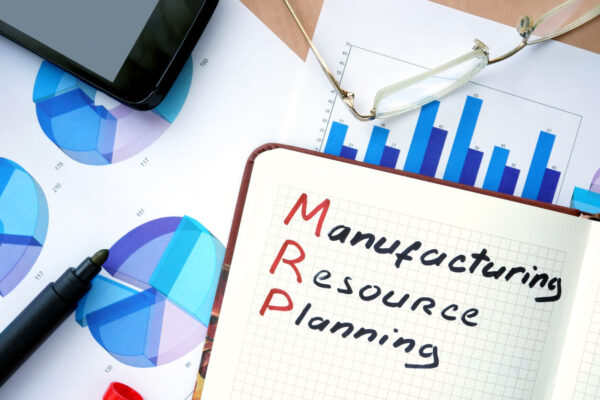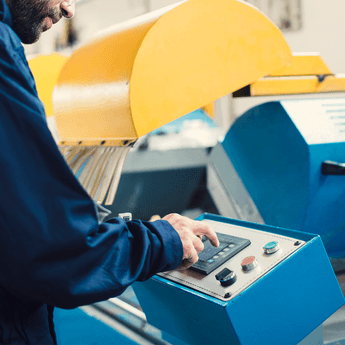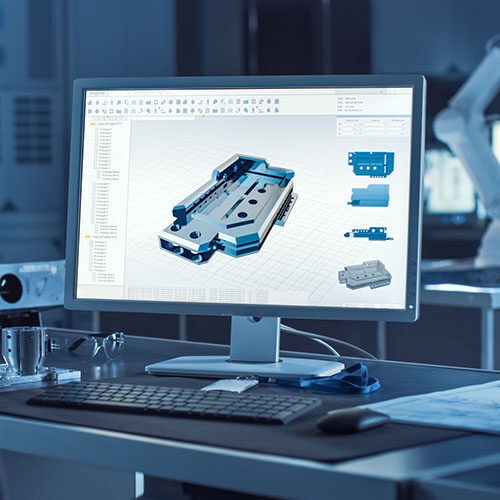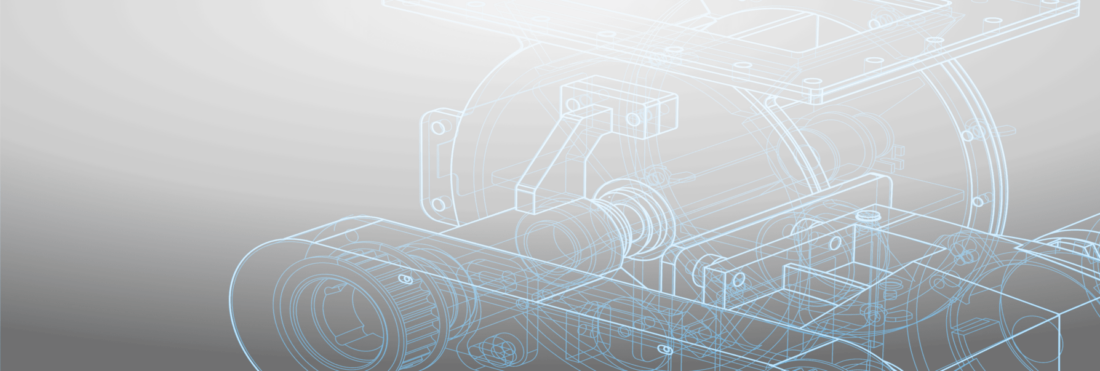What Is the Difference Between MRP and ERP?
MRPs (Material Requirements Planning) are a great way for manufacturers to manage their shops and include inventory, capacity planning, and scheduling features. However, ERPs (Enterprise Resource Planning) are an even better way for manufacturers to take control of their shops.
ERPs are a more complete software system — including all of the features of an MRP — but also let manufacturers improve and manage their sales, quotes and estimates, customer relationship management, accounting, human resources, project management, and much, much more.
People often get these two terms confused and it’s easy to see why: the acronyms are similar and ERPs and MRPs share the same history. But even though the two are intertwined, they are two separate entities and each will give you different levels of performance and capabilities. Read on below to get a more complete understanding of the difference between ERPs and MRPs.
MRP = Material Requirements Planning
MRP stands for Material Requirements Planning and is a software solution that helps manufacturers calculate more precisely what materials they require, at what time, and in what quantities. Over time MRPs developed more functionalities and most MRPs (known as MRP II) now include detailed capacity planning, scheduling, shop floor control, and other calculations. MRP II gives you the ability to compare forecasts with actual data, analyze performance and improve processes to achieve better efficiency.
ERP = Enterprise Resource Planning
ERP, on the other hand, stands for Enterprise Resource Planning and is a more complete software system that includes additional features and functionalities to help manufacturers automate and streamline business processes, not just related to manufacturing, but across their entire enterprise. ERPs developed out of MRPs and are designed to not only help manufacturers better plan their inventory and scheduling, but to help manufacturers with sales, quotes and estimates, customer relationship management, accounting, human resources, project management, and more.
ERPs go beyond MRPs and connect and integrate all the different aspects of your business into one database, allowing you to streamline tasks and processes, as well as share error-free information across your entire organization. ERPs power your business with accurate data, and help you to increase efficiencies and reduce costs across your organization.
In short, ERPs do it all, whereas MRPs are more specific to manufacturing processes.
A Brief History of MRPs and ERPs
The term ERP was first used in the 1990s by the Gartner Group, but ERP systems have deep roots in the manufacturing industry and can trace their history back to the MRP systems first developed in the 1960s.
During the 1960s, manufacturers realized they needed a better way to manage, track and control their inventory, and computer technology was advancing to the point that it could satisfy these requirements. Basic software solutions, named MRP, or Material Requirements Planning systems, were developed to meet the needs of manufacturers. These systems helped manufacturers monitor inventory and reconcile balances, as well as included very basic manufacturing, purchasing, and delivery functions.
Through the 1970s more and more manufacturers started to adopt MRP systems, and the systems themselves began to get more sophisticated. By the 1980s MRP systems evolved into what became known as MRP II (sometimes referred to as Manufacturing Resource Planning systems). These systems included the same functionalities as the original MRP systems, but also had expanded features and capabilities, making them better able to handle scheduling and production processes.
Evolving To Modern ERP Systems
By the 1990s the first true ERP systems came into use. These systems further expanded upon the basic inventory control and manufacturing processes of previous MRP systems to include other departments, features, and functions, such as accounting, finance, and sales. These systems set the stage for ERP solutions as we’ve come to know them today, by integrating multiple processes, tasks, and departments into a single system.
Today’s ERPs are fully integrated systems that connect and power every department and every aspect of your business. Modern ERPs provide manufacturers with a powerful, real-time tool that runs a single, shared database of information, which can be accessed by every department in an organization.
Modern ERP solutions not only include manufacturing, supply chain management, and financial and accounting capabilities, but they also can have advanced reporting and business intelligence, sales force and marketing automation, CRM management, and project management functionalities.
An ERP will increase a manufacturer’s performance by increasing productivity, as well as by optimizing both its resource planning, and its operation as a whole.
MRP as an ERP Module
With all this talk of ERPs, don’t lose focus on what an MRP can do for a manufacturing business. MRPs give you control over your manufacturing processes and include powerful tools for production scheduling, managing bills of materials and inventory, machine capacity scheduling, demand forecasting, and quality assurance. It’s important to note that ERPs didn’t replace MRPs, and some small manufacturers may only want and need an MRP to help them manage their manufacturing processes.
In fact, ERP systems that are built for manufacturers will include MRP as a module within the ERP system. In this way, manufacturers are able to take full advantage of the important functions, features, and capabilities that MRPs have to offer, but also have access to the broader functionalities included with ERP systems. ERP systems are excellent business tools for small- to mid-sized manufacturers that are growing their business, and need a better way to handle all of their business processes.
The ERPs of today are also extremely flexible and can be customized to your unique business needs. ERP vendors now offer a variety of tools, features, and functionalities, designed to meet the distinctive needs and challenges of different industries.
Harnessing the Power of Modern ERPs
ERPs are truly the workhorse of the manufacturing industry and can help you realize your goals and grow your business. As a manufacturer, you should take advantage of the flexibility and tailored solutions that an ERP can offer you.
Increased Efficiency
Doing things faster, better and with more consistency is the ultimate endgame for manufacturers. ERPs help you increase your shop’s efficiency because they help you do everything better. For example, you’ll manage your inventory with greater accuracy and schedule your shop with greater precision. And by improving all of your tasks and business processes you will become a more efficient and productive operation.
Better Collaboration
ERPs let your entire operation work off of the same centralized shared database. This opens the door to collaboration as it makes it easy for your staff to share information and data quickly and easily with each other. ERPs let you break down information silos and create a more open, transparent, and collaborative workplace.
More Accurate Forecasts
Accurate forecasting is essential to manufacturers, as they let you plan and manage your business better. Armed with the data that an ERP provides you from its reporting functionalities, you will be better informed, and be able to make better decisions, and create better forecasts for your business.
Reduced Operational Costs
You will reduce both operational and administrative costs with an ERP because you will run your entire operation from one centralized system, meaning you won’t have to pay for multiple systems and the associated maintenance costs. Also, because ERPs let you manage your shop better as a whole, you will avoid delays that can cost you dearly, for example, by being better able to manage long lead items or other processes that can set you back.
Conclusion
MRP and ERP software systems are very closely related. However, each will give you different capabilities and levels of performance and are different in the scope of services that they offer. Both ERPs and MRPs provide excellent manufacturing functionality, but it is the real question is whether you need assistance with more than just manufacturing processes. MRPs are focused specifically on manufacturing processes, while ERPs provide a broader range of solutions including accounting, project management, business intelligence, sales, and customer relationship management.






